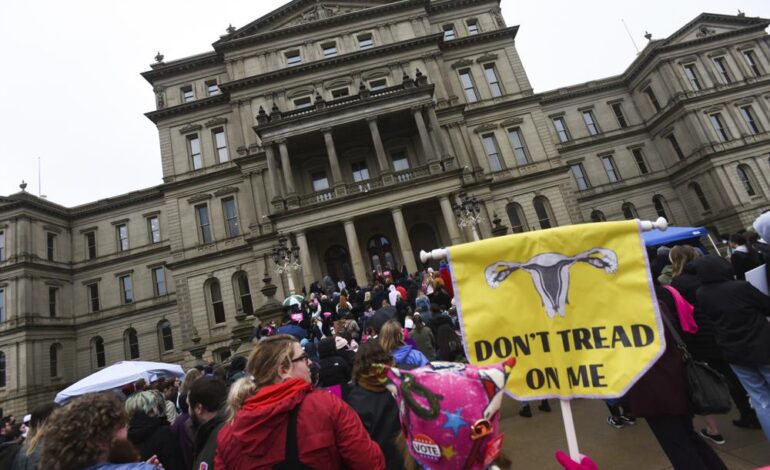LANSING — After an unprecedented reversal of reproductive rights protections by the country’s highest court, there is now some confusion about what that means for abortions among Michigan officials and health care providers.
This week, Michigan’s governor and attorney general clarified that due to a pending lawsuit in the Michigan Court of Claims against the almost-century old abortion ban on the books in the state, there is an injunction, or pause, on that ban.
The current version of Michigan’s law criminalizing abortion without exceptions for rape or incest was enacted in 1931. In 1973, the passage of Roe v Wade rendered Michigan’s 1931 ban unconstitutional and abortion became legal in the state.
On May 17, a Michigan state judge granted a preliminary injunction in a suit brought by Planned Parenthood against Michigan’s 1931 law criminalizing abortion. This injunction temporarily blocks the abortion ban, as part of an overall action in the state to permanently protect legal abortion in Michigan.
“Right now, abortion remains safe and legal in Michigan because of a court order temporarily blocking enforcement of the state’s 1931 abortion ban,” Governor Whitmer said. “But in the wake of the decision in Dobbs overturning Roe, certain county prosecutors and health providers have expressed confusion about the current legal status of abortion in Michigan.
“This only underscores the need for the Michigan Supreme Court to act now, which is why I sent a notice to the court urging them to immediately take up my lawsuit and decide if access to abortion is protected under the Michigan Constitution. Getting this done will put an end to any confusion and ensure that Michiganders, health providers and prosecutors understand the law.”
With the leak of the U.S. Supreme Court decision overturning Roe, Whitmer also filed a lawsuit asking the Michigan Supreme Court to recognize a constitutional right to an abortion under the Due Process Clause of the Michigan Constitution.
Her lawsuit asks the court to stop enforcement of the 1931 Michigan abortion ban, saying the abortion ban violates Michigan’s due process clause, which provides a right to privacy and bodily autonomy that is violated by the state’s near-total criminal ban of abortion.
The lawsuit also says the law violates Michigan’s Equal Protection Clause due to the way the ban denies women equal rights because the law was adopted to reinforce antiquated notions of the proper role for women in society.
Attorney General Dana Nessel clarified the status of the Planned Parenthood lawsuit this week.
A Claims Court judge determined that Planned Parenthood of Michigan was likely to succeed on the merit of its claim that the right to bodily integrity protected by the due process clause of the Michigan Constitution encompasses a woman’s right to choose to terminate a pregnancy through an abortion.
The judge further determined that without an injunction, Planned Parenthood patients “face a serious danger of irreparable harm if prevented from accessing abortion services.”
A January poll shows some 67 percent of Michiganders support Roe and 65 percent support repealing Michigan’s 1931 trigger ban on abortion. More than 77 percent of respondents believed abortion should be a woman’s decision.
So far, several prosecutors in the state have pledged not to prosecute patients, even those from other states, or health care providers, including Wayne County and Oakland County prosecutors.
“Despite the Supreme Court’s ruling last week, I remain committed to ensuring a woman’s right to choose and will continue to fight against every attempt to limit access to care,” Nessel said. “This includes ensuring Michiganders are properly informed regarding the current state court battle that is far from over.”
In response to the U.S. Supreme Court decision, which sparked nationwide protests and police crackdowns on rallies, Dearborn’s newly-formed Department of Public Health said it affirms “and will continue to do everything we can to support a patient’s right to make their own healthcare decisions.”






Leave a Reply